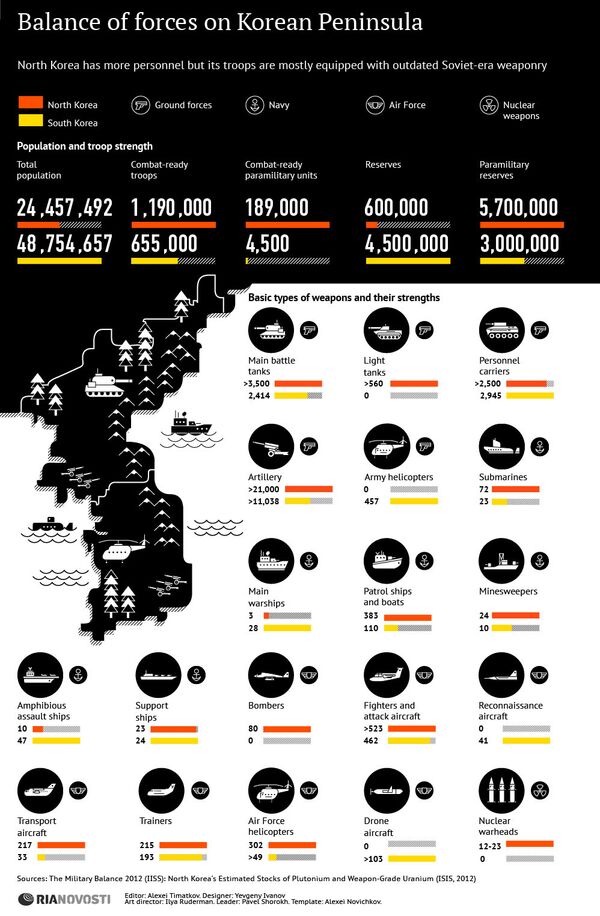WASHINGTON, April 5 (RIA Novosti) – White House Spokesman Jay Carney said Friday that the United States “would not be surprised” if North Korea launches another missile.
“We’ve obviously seen the reports that North Korea may be making preparations to launch a missile, and we’re monitoring the situation closely,” Carney said. “And we would not be surprised to see them take such an action.”
North Korea reportedly moved two missiles capable of striking the US Pacific territory of Guam onto mobile launch pads Friday, and advised foreign embassies to consider pulling staff out of Pyongyang.
The South Korean Yonhap news agency said North Korea had loaded two Musudan intermediate range ballistic missiles (IRBM), which have a range of 1,800-2,400 miles (3,000-4,000 km) -- or enough to hit the US military base on Guam -- onto mobile launchers and deployed them to a facility on its east coast.

Amid reports of the missiles being moved into launch-ready position, embassies in Pyongyang were “summoned to a meeting at the foreign ministry for an update on the security situation,” the duty officer at the Swedish foreign ministry in Stockholm, Kent Oeberg, told Ria Novosti by phone.
Sweden represents US diplomatic interests in North Korea.
“The meeting covered the issue of a possible evacuation and assistance from the North Koreans, if needed, in the event of such an evacuation,” Oeberg said.
He denied that North Korea had ordered foreign diplomatic staff out of the capital.
“I’ve seen reports that North Korea ordered embassies and international organizations to evacuate, but that was not the case,” Oeberg said, adding that Sweden has no immediate plans to pull out of Pyongyang.
The British Foreign Ministry said on its website that its diplomatic mission was one of “a number of embassies of foreign countries” to be advised at a meeting with the foreign ministry in Pyongyang that North Korea would be “unable to guarantee” the safety of embassy staff “in the event of conflict.”
North Korea “invited the Embassies and organizations present at the meeting to inform them by April 10 what assistance they would require… should they wish to be evacuated or relocated elsewhere,” the British foreign ministry said.
Britain has “no immediate plans to withdraw our Embassy,” the statement added.
Russian Foreign Minister Sergei Lavrov told reporters in the Uzbek capital of Tashkent, where he was attending talks on Iran’s nuclear program, that “the proposal (to pull staff out of North Korea) was made to all the embassies in Pyongyang, and we are now trying to shed light on the situation.”
There are two dozen foreign embassies in Pyongyang.

